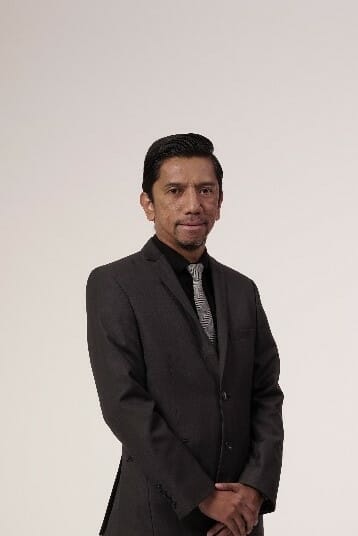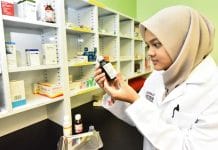By Dr. Marhisham Che Mood, Head of Paediatric and Congenital Heart Centre (PCHC) & Consultant Paediatric Cardiologist,
While heart disease can be difficult enough when it strikes adults, it can be especially tragic in children.
From congenital heart defects to heart diseases acquired later in childhood due to illnesses or genetic
syndromes, managing such conditions in young patients can be a complicated affair.
However, Institut Jantung Negara (IJN) has been meeting this challenge head-on through its paediatric
cardiology services. The centre’s Paediatric and Congenital Heart Centre (PCHC) is currently the go-to
hospital for complex heart surgery in children, and also presently the only centre in Malaysia offering
established treatments for paediatric heart rhythm problems.
IJN consultant paediatric cardiologist Dr Marhisham Che Mood, who also heads the PCHC, explains that
the centre primarily focuses on congenital heart disease. “Around 95% of our patients are those who
have congenital heart defects,” he says. “This includes adult patients with congenital heart disease
who continue to receive care from our team of dedicated adult congenital heart disease specialists.”
He adds that adults with congenital heart disease require specialised care, as they have different and
often more complex needs than regular heart patients.
“These patients may have undergone multiple surgeries in the past to manage their condition, and some can have hearts that look and function differently than the average heart. Our adult congenital heart disease cardiologists are trained to provide specialised long-term care so that these patients can have a better quality of life,” he says.
The centre also carries out foetal echocardiograms, where the heart of foetus is examined using an
ultrasound machine. “This enables us detect any issues earlier, especially for pregnant women who risk
having babies with congenital heart disease. The procedure is safe and simple, but it does require the
expertise of foetal imaging specialists and paediatric cardiologists to interpret the results accurately,”
adds Dr Marhisham.
Pioneering cutting-edge techniques
One of PCHC’s trademark strengths is its track record in performing simple and complex heart surgeries in children, as well as being a pioneer in introducing newer techniques and treatments.
In 2019 alone, the centre has introduced remarkable procedures for some of its youngest patients. The first is a bio-absorbable stent for infants suffering from complex congenital heart disease. PCHC was the first in the world to implant this stent in humans, as part of a clinical trial carried out last
year.
Stents are tube-like devices that are used to open and widen clogged heart arteries in adults. In
infant, it’s used to prolong the patency of ductus arteriosus as initial palliation for congenital heart
disease.
The advantage of bio-absorbable stents is that they will clear the body after a few years, hence reducing possible long-term complications that are associated with regular stents.
“This particular stent is absorbed into the blood vessels after some time,” explains Dr Marhisham. “We
implanted these stents in 10 patients, and our follow-ups with them have been very promising. Next,
we’re planning to implant similar stents for more complex heart cases; there’s also a pulmonary artery
stent currently in development, so that’s something we want to do as well.”
Another recent groundbreaking procedure carried out was device closure of patent ductus arteriosus
(PDA). PDA is a condition where there is an opening between the two major blood vessels leading from
the heart. While this opening (called the ductus arteriosus) is a normal part of a baby’s circulatory
system before birth, it usually closes shortly after birth.
PDA tends to be a common occurrence in preterm babies, and the usual surgical methods used to
correct it can be troublesome. With this new procedure however, doctors are able to deliver a device
via transcatheter to occlude the opening.
Dr Marhisham says that PCHC are able to carry out the procedure on babies weighing as low as 1000 gram. “We’ve performed this device closure of PDA on 10 patients so far, and they’re all doing well with our follow-up care,” he says.
This year meanwhile, doctors at PCHC will carry out Malaysia’s first established and approved
percutaneous pulmonary valve implantation, which is the replacement of the pulmonary valve via catheterisation through the femoral vein.
“This procedure is usually done to correct the leaking in the pulmonary valve on the right side of the heart. Before this, patients will have to undergo surgery to have this valve replaced; but now we can implant the device via transcatheter procedure,” explains Dr Marhisham.
Even though the procedure has been postponed due to Covid-19 pandemic, it will take
place at the sooner date.
Prioritising long-term outcomes
He adds that as congenital heart patients tend to require repeated interventions and treatment, the
advancement of non-invasive procedures can help minimising the need for surgery. “”That’s why we’re
very keen on introducing more minimally invasive procedures,” he says.
“We want our patients to have a good quality of life, without having to undergo multiple heart surgeries to achieve this goal.”
In this respect, the PCHC measures its success by the overall care it offers congenital heart patients throughout their lives. While the centre has established itself as a regional leader in treating complex
heart diseases and non-surgical interventions,
“We can’t just look at the number of complex procedures we’ve done and just leave it at that – follow-
up care is key,” says Dr Marhisham. “One of the biggest challenge is patients with complex congenital heart disease have to face their condition into adulthood. Some may struggle with employment,
pregnancy, and even other health complications. That’s why it’s so important to have adult congenital
heart disease specialist, so that these patients can get the tailored care that they need.”
The centre also offers emotional support to patients, parents and caregivers of patients through Nadi PCHC, a support group comprising IJN clinical staff alongside parents, volunteers, psychologists and
counsellors.
Dr Marhisham says while doctors do their best to counsel patients or parents, the support group was important to give patients and caregivers a sense of community. “It’s a voluntary effort, and our doctors, nurses, dietitians, and physiotherapists are also part of the group. But most of the time, patients and their caregivers feel more comfortable taking about their struggles with others who have
been through the same experience,” he says.
The centre will also be upgrading its facilities as part of IJN’s expansion plan, which is scheduled to be
completed in 2022. Dr Marhisham is confident that this will make the PCHC environment even more
conducive for patients, especially given the centre’s workload – in 2019 alone, the PCHC saw a total of
15,212 patients. “IJN as a whole takes a patient-centric approach to medical care, and this includes
enhancing the experience patients have at the hospital itself,” he adds.









